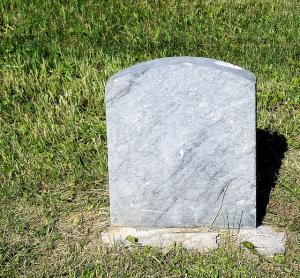
Things don’t always go exactly as planned in life or in angel investing. And just as in life, with angel investing, it pays to be prepared. Here’s what I mean.
When I started my new career as an angel investor, I convinced my step father to co-invest with me in a number of companies. When he was much younger, he invested in a friend’s startup business and it turned into a great investment. So, he was eager to relaunch his angel career and recapture some of the excitement he felt many years ago.
Since I live in Cambridge and am part of a large, active angel group, I am able to invest in many interesting companies. Every so often, I would introduce my step father to a company that I was about to invest in. Our co-investments included several enterprise software companies and a medical diagnostics company. He enjoyed hearing about the progress each company was making and looked forward to the day he would make a nice return on his investment.
Unfortunately, time was not on his side, and he died unexpectedly before any of his investments came to fruition. As we all know, most startup companies will require several years to reach an exit. All of my step father’s angel investments were only 2 or 3 years old when he passed away. They became part of his estate and working with the estate lawyers to properly value those investments became my responsibility.
I’ll pause here for a moment and let you all reflect on how much fun it is to work with Trust & Estate lawyers… For the next two years, I had regular phone conversations with several attorneys at a large, regional law firm. My first order of business was to explain to them what these angel investments were all about. As T&E lawyers, this was all new to them, which really didn’t surprise me. So I had the pleasure of educating them while they were billing me at their exorbitant hourly rate. When I tried to explain to them that the current value of these companies was close to zero, they wouldn’t accept my opinion. “But”, I argued, “if a company has no revenue, almost no money in the bank, and no company interested in buying them, how can the company be worth much?”
So, I changed course and said, “Okay, let’s just value the company at the cost basis of my step father’s original investment.” Well, that didn’t go over too well with them, either! So, they said, “Let’s bring in one of our tax attorney’s and he can help us value the investments. And, oh by the way, can you get each company’s tax returns, balance sheets, and P&L statements from the past three years?” So, off on a wild goose chase I went. After much wrangling, I was able to get the documentation they requested. And let me tell you, it was not easy. Have you ever tried calling a busy, startup company CEO and asking for three years of financial documents? My request did not go over well!
Two years and almost 50 hours at the law firm’s ridiculously high billing rate, we finally came to a resolution on how to value the companies. Guess what? They decided to value the companies at my stepfather’s cost basis. Which is exactly what I had suggested two years and many large legal bills ago.
I know I am not the first person to run into this issue when dealing with the death of a family member. This situation has occurred several times within my angel group, and I am aware of one local angel who died with over 200 active angel investments in his portfolio. Boy, do I feel sorry for his heirs!
So what can you do to prevent this scenario from happening to you and your heirs? My brief advice is simple, and powerful and comes in two parts:
- Work with a law firm that understands how angel investments fit into your estate plan
- Make sure you track your angel investments and keep records of the information they send you over time so that it can be shared with your lawyer, accountant and family members
In future blog articles, we will share more insights as to how you might follow this advice. Having personally experienced this situation, I want to make sure my fellow angel investors don’t have to relive what I went through only a few years ago. Remember, you don’t have to leave a mess for your heirs to clean up, and if you are a responsible investor, you won’t.

